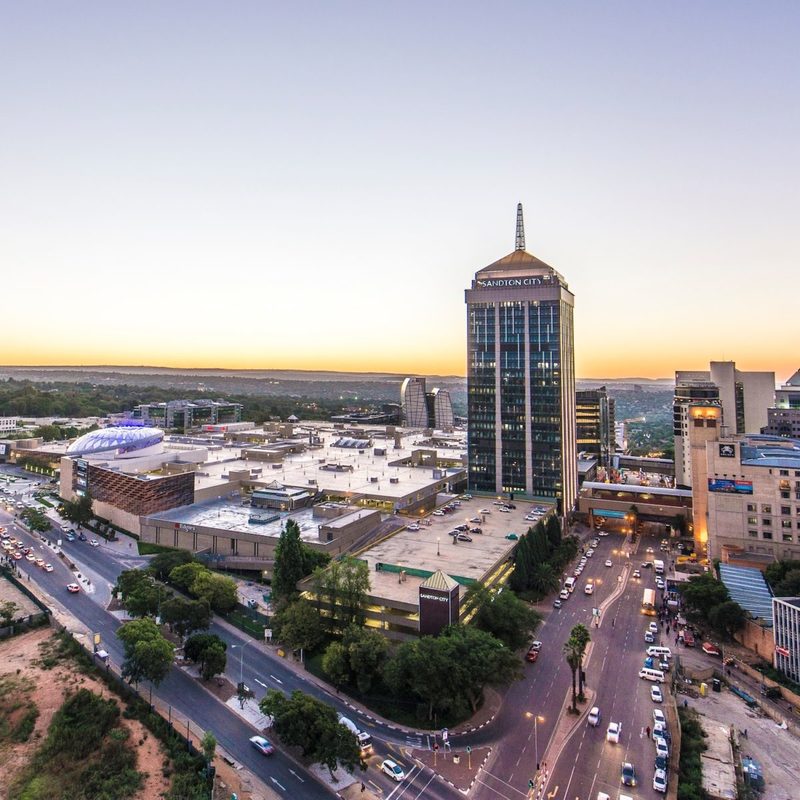As the election approaches, amidst some people’s unrealistic rhetoric, there are certain irrefutable facts that cannot be suppressed.
The 2024 Africa Wealth Report, published by the advisory firm Henley & Partners in collaboration with their partner New World Wealth, indicates where dollar millionaires and billionaires are moving to – and from where they are moving.
According to their data, Johannesburg, but more specifically certain Sandton residential areas, are still home to most of the super-rich in South Africa and Africa. However, this is changing rapidly. Cape Town is a major beneficiary of wealthy Gauteng individuals (as well as businesses) who semi-farm. The Mother City is, however, the preferred destination of millionaires from Europe and Africa and is estimated to overtake Johannesburg as the richest city on the continent by 2030.
That’s not all. Other towns, regions, countries and cities have collectively seen more than 30% growth in their number of wealthy over recent decades. They include Mauritius, Rwanda, Namibia and South Africa’s so-called Whale Coast (including Hermanus, Bettiesbaai and Rooiels) and Garden Route (George and surrounding areas). Like Cape Town, the last two regions are located in the Western Cape.
Moreover, their future looks even more promising than their past. According to the report, places such as Swakopmund, Windhoek, Cape Town, Nairobi and the Whale Coast can look forward to an expected growth of 85% in millionaires over the next decade. The Cape Winelands can also be mentioned in this connection.
As in the case of Africa, the oversimplified view of South Africa’s problems usually only applies to the country and national government. But as Rwanda and its capital, Kigali, show, there is hope in the midst of and after a tragedy and nuance is needed.

It doesn’t happen by itself. The above mentioned places have created the right rules to achieve their growth in wealth and work. Kigali is known as a very clean city with law and order. Moreover, Rwanda is growing at an average of 7.5% and the private sector is to thank for that. This is a city and country where 800,000 people were murdered 30 years ago in a genocide.
Admittedly, it is a kind of autocracy – like Singapore since 1965 – with rules that prioritize economic development and growth over largely futile elections. And it still trumps Johannesburg and South Africa in terms of growth! So spare me the nonsense of a new era and freedom that was gained in 1994.
Ditto the Western Cape, Namibia and Mauritius. As someone who does business in all three of these places and lives in the Western Cape myself, I am well aware that their rules on property rights and taxation (such as capital gains in the case of Mauritius) are better than in the rest of South Africa . This leads to predictability and stability while the government only does what is necessary. Not perfect, just better.

Capitalism – albeit in a mixed system – can be thanked for this. Historian Niall Ferguson identifies competition, the rule of law and work ethic as three of the six “killer apps” that marked the West’s rise over the centuries. These are characteristics closely associated with capitalism.
Napoleon Hill writes in 1937 (in the midst of a decade of economic depression and hardship in America) in his seminal work Think and Grow Rich about how capitalism has improved the US for the better in terms of convenience, price, international trade and choice. He provides numerous examples and then states the following:
“This is a capitalistic country… we who seek to accumulate riches here, may as well know that neither riches nor opportunity would be available to us if organized capital had not provided these benefits.”
He also rails against the organized labor sector, opportunistic politicians and those who desire “something for nothing” and highlights capitalism’s ground truths:
“There is a principle known as the law of economics! This is more than a theory. It is a law no man can beat… Most people living in America like this country, its capitalistic system and all. I must confess I know of no better country, where one may find greater opportunities to accumulate riches.”

Dr. Greg Mills of the Brenthurst Foundation in Johannesburg, a think tank that promotes good governance in Africa, enters Why States Recover that state failure can be attributed at least in part to governments, i.e. political hierarchies, unwilling to loosen their grip on wealth, patronage and levers of power. According to him, the impact and speed of reform is dependent on the private sector and therefore any disapproval of it should be abandoned.
The Western Cape and Mauritius have already realized this and the contrast in many respects with other regions and countries in Africa is beyond doubt. That’s why I will vote on May 29 and otherwise continue to look for opportunities where they are most attractive.








